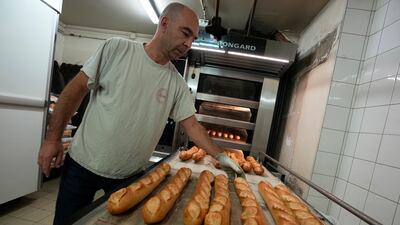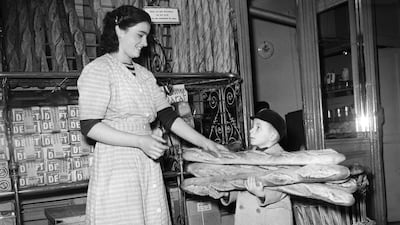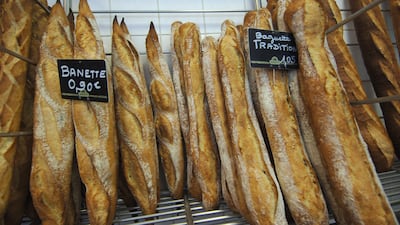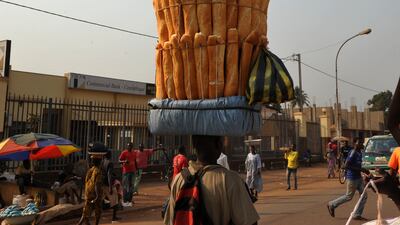The French baguette has been granted world heritage status by Unesco, the UN agency announced on Wednesday.
The Paris-based UN heritage organisation voted to add the “artisanal know-how and culture of baguette bread” to its Intangible Cultural Heritage list.
The fluffy stick-shaped bread with a crunchy crust joins the list of about 600 traditions from more than 130 countries.
Judges said the decision honours more than just bread. It recognises the “savoir-faire of artisanal bakers” and “a daily ritual,” said Unesco chief Audrey Azoulay.
“It is important that these skills and social habits continue to exist in the future,” added Ms Azoulay, a former French culture minister.
With the bread’s new status, the French government said it planned to create an artisanal baguette day, called “Open Bakehouse Day,” to connect the French better with their heritage.
Bakers in France are proud, if not surprised.
“Of course, it should be on the list because the baguette symbolises the world. It’s universal,” said Asma Farhat of Julien’s Bakery near Paris’s Champs-Elysee avenue.
“If there’s no baguette, you can't have a proper meal. In the morning you can toast it, for lunch it’s a sandwich, and then it accompanies dinner.”
The baguette is a symbol of France around the world and has been a central part of the French diet for at least 100 years, although some believe it has been around for longer.
One theory is that the bakers around the time of Napoleon Bonaparte came up with the elongated shape to make it easier for his troops to carry.
But another theory posits that it was actually an Austrian baker named August Zang who invented the baguette in 1839, when he introduced steam ovens in France, making it possible to produce bread with a brittle crust yet fluffy interior.
The product’s zenith did not come until the 1920s, with the advent of a French law preventing bakers from working before 4am.
The baguette’s long, thin shape meant it could be made more quickly than its heavier cousins, so it was the only bread that bakers could make in time for breakfast.
These days a baguette — which means “wand” or “baton” — is sold for about 1 euro ($1).
Although baguette consumption has declined over the last decades, France still makes approximately 16 million of the loaves a day, according to a 2019 Fiducial estimate.
According to France’s “Bread Observatory” the French munch through 320 baguettes of one form or another every second. That is an average of half a baguette per person per day, and 10 billion every year.
The problem is, observers say, that they can often be of poor quality.
“It’s very easy to get a bad baguette in France. It’s the traditional baguette from the traditional bakery that’s in danger. It’s about quality not quantity,” said one Paris resident, Marine Fourchier, 52.
In January, French supermarket chain Leclerc was criticised by traditional bakers and farmers for its much publicised 29-cent baguette, accused of sacrificing the quality of the roughly 65cm loaf.







